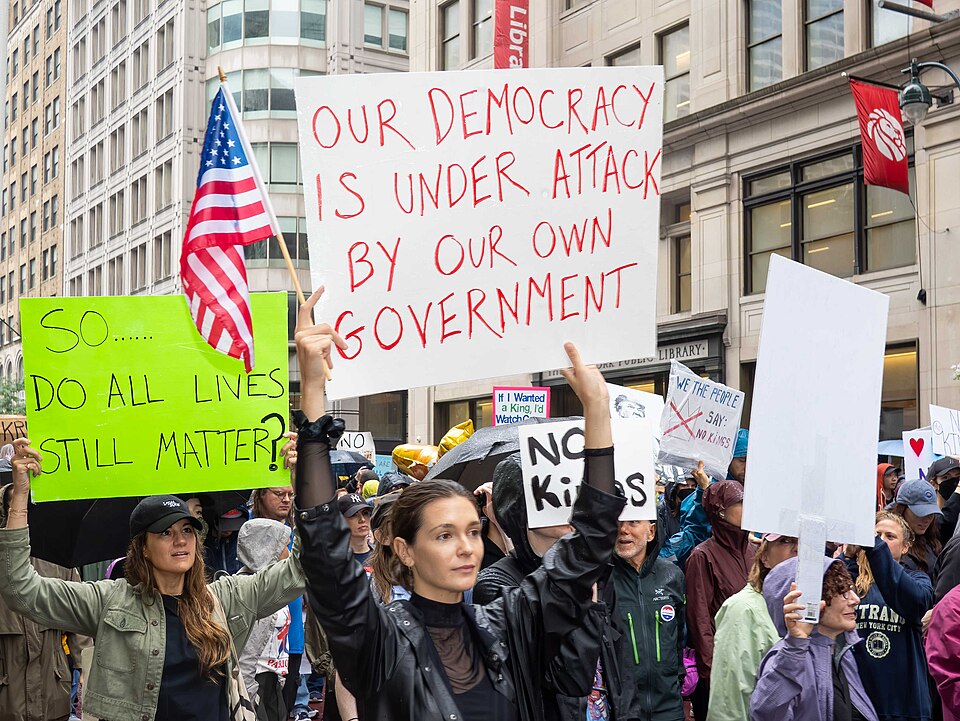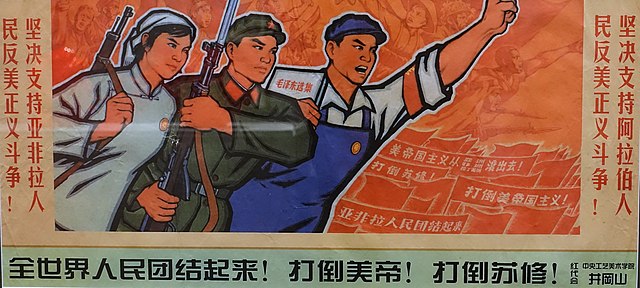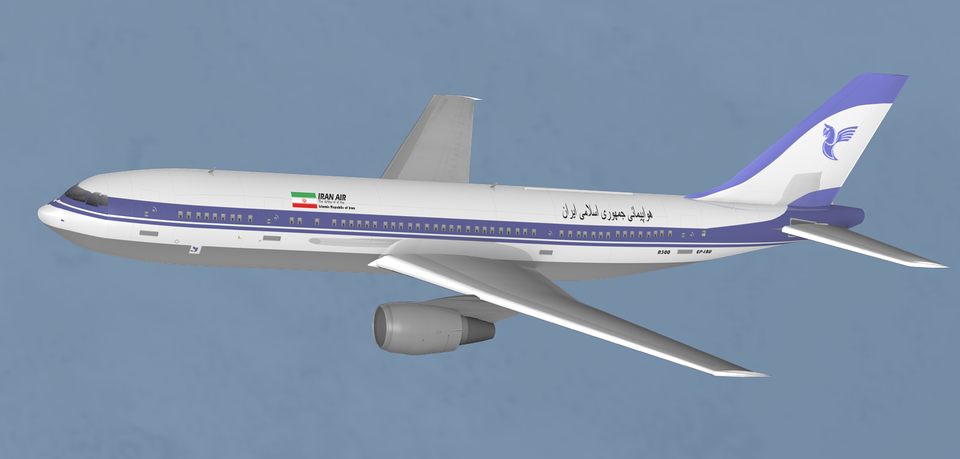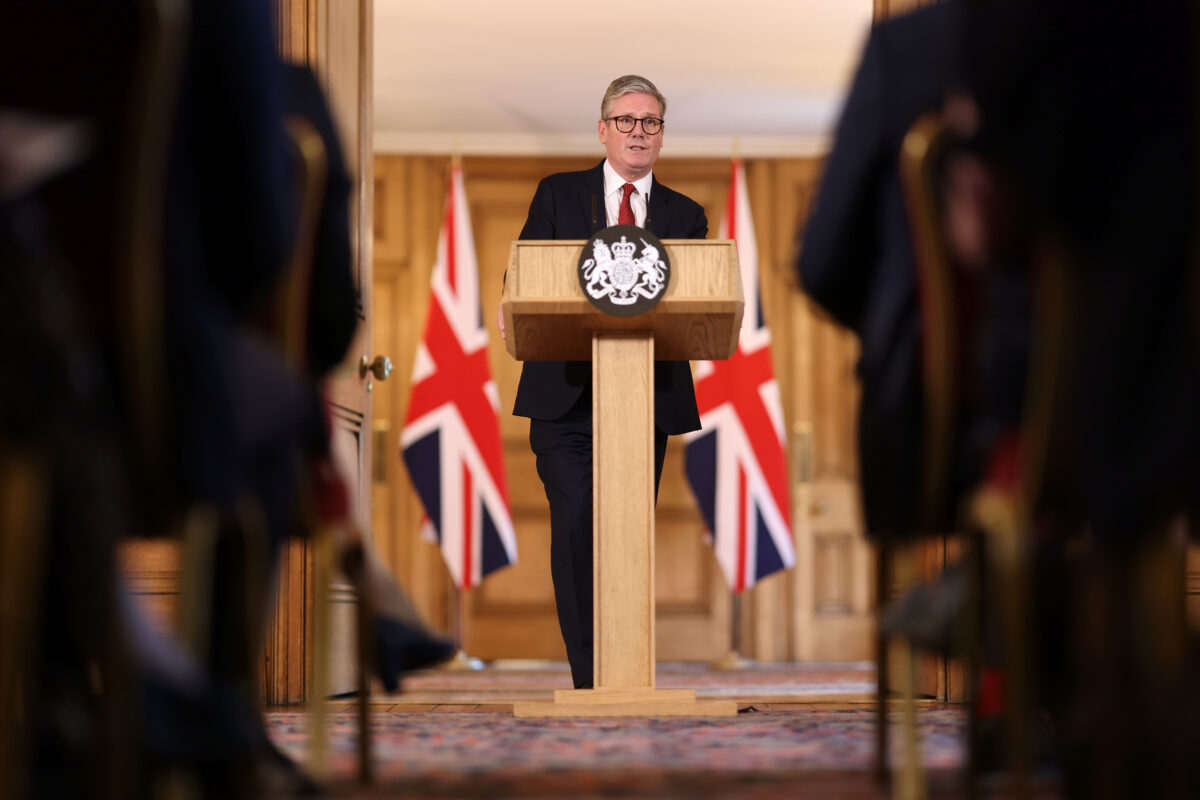Out of the 1.4 billion people who live in the People’s Republic of China (PRC), around 100 million Chinese citizens are members of the Communist Party of China (CPC). To put that in perspective, Germany has a total population of about 84 million. And yet, all too often popular and even academic discourse sees fit to make broad categorizations (be they positive or negative) about China and its ruling Party, as if a political organization larger than any European country except Russia or a country larger than any other save India could be reduced to a single voice. Indeed, it is highly questionable how any group of such size could function at all without discourse, criticism, and self-reflection, and yet China’s return to global prominence has been meteoric.
Making matters worse, ideological sectarianism has led many leftists in the English-speaking world to refuse any serious engagement with more recent developments in China. This has resulted in a media landscape in which some of the most comprehensive outlets describing China’s socialist project come from reactionary sources engaged in bad faith analyses. The aim of this article is to serve as an introduction to a few of the key elements of the Chinese effort to construct socialism. It is written to inspire readers to engage more deeply with the many voices coming from China, rather than attempt to reduce the entirety of the PRC or the CPC to something which can fit inside of an “either this or that” box.
Socialism with Chinese Characteristics
Any amount of time studying CPC publications will quickly familiarize one with the concept of the tífǎ (提法). Tífǎ are short phrases which condense extensive ideological meaning, with examples including “Harmonious Society”, the “Four Basic Principles”, and “Socialism with Chinese Characteristics”. In the case of Socialism with Chinese Characteristics, what is being invoked is the continual application of socialist theory within China’s unique but permanently changing material circumstances. To that end, a line is drawn connecting the Party’s major ideological developments, which are listed as: Marxism-Leninism, Mao Zedong Thought, Deng Xiaoping Theory, the Theory of Three Represents, the Scientific Outlook on Development, and Xi Jinping Thought on Socialism with Chinese Characteristics for a New Era.
The CPC Constitution, in summarizing these developments, refers to each as a “crystallization of the collective wisdom of the Communist Party of China” in their respective epochs, emphasizing historical precedence. Each major ideological development by the Party is contextualized with all those that have preceded it and justified by its claim of representing a continuation of Marxist-Leninist principles. The development of China’s socialist project has been one of dramatic change and adaptation, but it is interesting to note how, with each new iteration of party leadership, the CPC has found it necessary to state and restate its commitment to socialist principles and a communist future. The Party’s legitimacy, its “right to rule”, is in part tied to its adherence to socialist ideals. Rather than attempting to move beyond these ideals, the rhetoric of the CPC repeatedly and consistently reaffirms them.
Like all nation-states, the PRC has no choice but to exist in a world-system defined by the dominance of the capitalist mode of production. The PRC Constitution states that “class struggle will continue to exist within a certain scope for a long time to come” adding that “the people of China must fight against those domestic and foreign forces and elements that are hostile to and undermine our country’s socialist system”. Similarly, the CPC Constitution notes that “owing to both domestic factors and international influences, a certain amount of class struggle will continue to exist for a long time to come, and under certain circumstances may even grow more pronounced, however, it is no longer the principal contradiction”. This is rationalized, according to the CPC Constitution, as inevitable given China’s current level of development in what is called the “primary stage of socialism” — a stage which “cannot be bypassed” and “will take over a century”.
Article 3 of the PRC Constitution and Article 10 of the CPC Constitution state that the State and Party operate in accordance with the principles of democratic centralism. It is true that the centralized aspect of Chinese governance limits actions and speech which would hinder the Party’s decisions, but this should not be misunderstood as the negation of debate within the Party or country as a whole. Dissent is constrained, but that does not mean that it does not exist. In 2012, Chinese academic Cheng Enfu defined seven tendencies in China’s political discourse: neo-liberalism, democratic socialism, new leftism, eclectic Marxism, orthodox Marxism, revivalism, and innovative Marxism. These tendencies are representative of a complex and ongoing debate within China and include policy-positions ranging from the prioritization of Confucian values to the furthering of economic privatization to the reinvigoration of Maoism. Similarly, David Ownby, a professor at the University of Montreal who runs the Reading the China Dream blog, frequently translates works by Chinese scholars into English, dividing this discourse into three main categories: liberalism, New Leftism, and New Confucianism. Ownby insists that “genuine debate… occurs constantly in China, and the intellectual world is not as ‘harmonious’ as Chinese authorities would prefer, nor as totalitarian as Western media sometimes suggests.”
Moreover, CPC publications, as well as the Party’s constitution, insist that China has entered the “primary stage” of socialist development. Whereas Lenin’s State and Revolution elaborated on the Marxist conception of the time, that the overthrow of capitalist society would first result in a “lower phase” of communism (socialism) and then a “higher phase”, the CPC insists that this lower phase must itself be broken into stages given China’s historical circumstances. In the “primary stage” of socialist development, the CPC has achieved national autonomy and placed market forces under Party control. From this perspective, one might understand the continuance of class struggle as a tactical decision while the CPC pursues the current “principal contradiction” of raising the living standards of the Chinese people and addressing “unbalanced and inadequate development”.
Cheng Enfu and Yang Jun, in an article for the Monthly Review, consider China’s socialist development through a “Triple Revolution” theory. They argue that revolution first takes the form of a seizure of power, followed by an embodiment of reform and self-improvement, and finally a transitional period to “carry the revolution through to its completion”. The authors note how this notion of carrying the revolution to its completion has been reintroduced by Xi Jinping as an “urgent demand” of the CPC. The development of socialism in China is an ongoing conversation, and its future will be tied to the ability of Chinese socialists to push their values forward through the challenges of both internal and external contradictions.
“Crossing the River by Feeling the Stones”
The CPC is attempting to build socialism by balancing the benefits and consequences of market economics through a process of experimentation and a philosophy of pragmatism (summarized in Deng Xiaoping’s famous quote, now an oft-quoted adage in Party discourse: “crossing the river by feeling the stones”). Chen Yun, who served on the Central Committee of the CPC from 1931-1987, described what has come to be known as “birdcage economics”. Chen insisted that market forces were necessary for the PRC to catch-up with the industrialized world before it succumbed to internal and external pressures. However, he also warned that the “bird” (market forces) must never be allowed outside of its “cage” (the state plans of the CPC). He stated: “We have to utilize a cage, that is to say, both invigoration of the economy and allowance for regulation by market forces should play their role as prescribed by the state plan, and we must not deviate from the format of state plans.”
China’s socialist market economy is not Soviet-style socialism premised on central planning. Nor is it free market capitalism. It has elements of both, though in reality it is neither. The state plays a tremendous role, and while the market is given space to thrive, this space is defined by ironclad limits set by the Communist Party and adjusted in accordance with changing domestic, international, and global realities. The question of whether any individual adjustment is conducive to the ends of socialism or represents a step backward is best raised empirically, rather than ideologically, which requires familiarity with China’s material situation.
The CPC’s exercise of state power has also extended beyond the market. Yang Ping, founder of the journal Wénhuà Zònghéng (文化纵横), considers China’s rise to be representative of a “third wave” of socialism following the initial wave of European labor movements gaining class-consciousness and the second wave of socialist state projects which ended with the dissolution of the USSR. Yang argues that China’s development of a socialist market economy has allowed it to rise rapidly without succumbing to the international pressures that overwhelmed Soviet-style socialism. Key to this point is an emphasis on the leading role of the Communist Party on the grounds that “if socialism does not provide ideological and cultural leadership, capitalism inevitably will”.
Under Xi Jinping, there has been a renewed effort at consolidating more and more civil spaces and social institutions under CPC control — rationalized, according to Yang Ping’s argument, that CPC leadership is necessary to prevent Chinese development from succumbing to capitalist idealism. This logic might be compared to the role of the state as a “birdcage” for the market: the CPC understands that the institutions of civil society must expand as China develops, but will not allow this expansion to take place without oversight on the grounds that the absence of leadership by the Communist Party is synonymous with the presence of leadership by capitalist interests. This is a balancing act, one which is rife with contradictions, and Socialism with Chinese Characteristics will be judged historically by its ability to successfully navigate and resolve such contradictions.
One example of these contradictions in civil society is the role of organized labor in China. All labor unions must be affiliated with the All-China Federation of Trade Unions (ACFTU), an organization controlled by the CPC. Within China’s socialist market economy many corporations are also under party oversight, and must maintain internal party organizations. This creates an obvious conflict of interest in which workers seeking a resolution to their grievances are left appealing to representatives who are also connected to their company’s management. This has resulted in widespread distrust of the ACFTU and the emergence of grassroots labor organizations and NGOs in Chinese civil society, initially tolerated by the CPC but now largely dismantled or integrated into CPC-led organizations.
However, the integration of Party and society has also enabled incredible progress, such as Xi Jinping’s poverty alleviation campaign which has lifted nearly 100 million Chinese citizens out of extreme poverty since 2013 (contributing to the 800 million who have been lifted out of poverty in China since 1978). The success of such a campaign would have been unthinkable without the capacity to mobilize large numbers of party cadres alongside local communities to address problems at their roots and in a sustained way. For example, a key role was played by the All-China Women’s Federation (ACWF), a mass organization tied to the CPC. This deliberate linking of Party and civil society represents an adherence to the Maoist principle of the “mass line”. The same integration of civil society organizations under CPC control which has contributed to workplace grievances and widespread strikes has also facilitated the unprecedented feat of raising the living standards of hundreds of millions while eradicating extreme poverty. China’s path to socialism is a balancing act. It is an ongoing debate over how to implement the proper kind of leadership in relation to constantly changing material circumstances, and in the face of internal and external contradictions — it cannot be otherwise.
What Can Be Learned from China’s Socialist Endeavor?
CPC official Sun Yeli has stated that while China’s modernization process contains universally applicable aspects, it is also tailored to China’s unique context. The scholar Yuen Yuen Ang has described China’s economic model as “using what you have”, referring to the creative application of local resources by grassroots actors in accordance with top-down directives. What might be learned from China is not any one specific policy or organizational system, but a methodology. An understanding of Marxism not as a dogmatic subscription to a set of conclusions to be considered ahistorically, but rather as a science of change grounded in the material world. Socialist principles (the pursuit of economic equality, international solidarity, and a resolution of exploitative contradictions) should be ironclad and inflexible. But these principles cannot be realized in one fell swoop — they must be constructed piece by piece, with inevitable setbacks and all of the challenges of human imperfection.
Marxists around the world should consider what socialism will have to look like in relation to their own specific environments. This requires a critical analysis of which tactics will or will not allow one to further the socialist cause, conducted concretely rather than abstractly. The fact that the CPC has not been able to skip from its “Century of Humiliation” straight to a fully classless society free of exploitation seems to be grounds for many so-called “Western Marxists” to dismiss the entirety of China’s effort at socialist construction outright, a consequence of treating Marxism as a dogma rather than as a science. Yet, no socialist project has ever existed outside of a state of siege from both domestic and international counter-revolutionary forces. Nor has a socialist project yet been achieved in the so-called “developed” world.
Such points cannot be brushed aside. Socialist China did not come into being with an industrialized economy or a military strong enough to secure its sovereignty. Rather, it emerged out of a period of historic weakness, imperialist exploitation, and poverty. High among these contradictions has been the horror of poverty, which led Deng Xiaoping to declare that without raising people’s living standards “you cannot say that you are building socialism”. In spite of its hardships, China has made historic strides forward. Missteps, setbacks, and counter-revolutionary tendencies (both internal and external) are inevitable. Socialist construction cannot proceed through ideological purity, it must navigate the contradictions of reality without losing sight of a red future.
There are of course reasons for concern, for example the makeup of the Party going forward. Drawing on the Organizational Department of the CPC as its source, South China Morning Post reports that CPC membership in 2019 consisted primarily of managerial and technical workers. Agricultural and “blue-collar” workers combined make up roughly a third of Party membership (a slight decrease from 2012). The Party is also aging, with about 18% of members being retirees and around a third being at least 61 years old. Female representation is horribly low and improving only at a snail’s pace. The composition of the Party, increasingly “white collar” and stubbornly male, cannot but impact the internal decision-making dynamics of the CPC going forward — but such matters are concerns, not grounds for surrender or dismissal.
In one of his polemics, Vladimir Lenin noted that in revolutionary times the Communist Party had to “speak French”, his metaphor for utilizing “rousing slogans” to “raise the energy of the direct struggle of the masses and extend its scope”. For “pure” socialists, this direct application of revolutionary zeal seems to be the be-all end-all of socialist construction. Yet, Lenin claimed, in times of stagnation one must learn to “speak German”, working slowly, “advancing step by step, winning inch by inch”, ultimately declaring: “Whoever finds this work tedious, whoever does not understand the need for preserving and developing the revolutionary principles of Social-Democratic tactics in this phase too, on this bend of the road, is taking the name of Marxist in vain.”
The history of the Communist Party of China is that of an organization which has learned, through trial and error, when to “speak French” and when to “speak German” (and there have been errors, ranging from the consequences of the Cultural Revolution to the inconsistency with which violations of worker’s legal rights have been addressed). Now, as the largest economy by GDP (PPP), the CPC is showing the world what it means to “speak Chinese”: to creatively navigate the contradictions of socialist growth in a capitalist world-economy while tirelessly developing a revolutionary culture. China’s socialism will proceed in the only way human endeavor possibly can: through steps and missteps, deviations and corrections, debate and reflection. It is an experiment which demands the world’s attention, led by a party which is not static, but living. Readers are encouraged to engage critically with the variety of theoretical perspectives emerging from China, and to engage with China’s socialist project as a process rather than as a monolith. In this time of historic reaction, Leftists around the world must learn to “use what they have”, to refine theory through practice, and to progress down the path towards a red future through both inches and strides.




